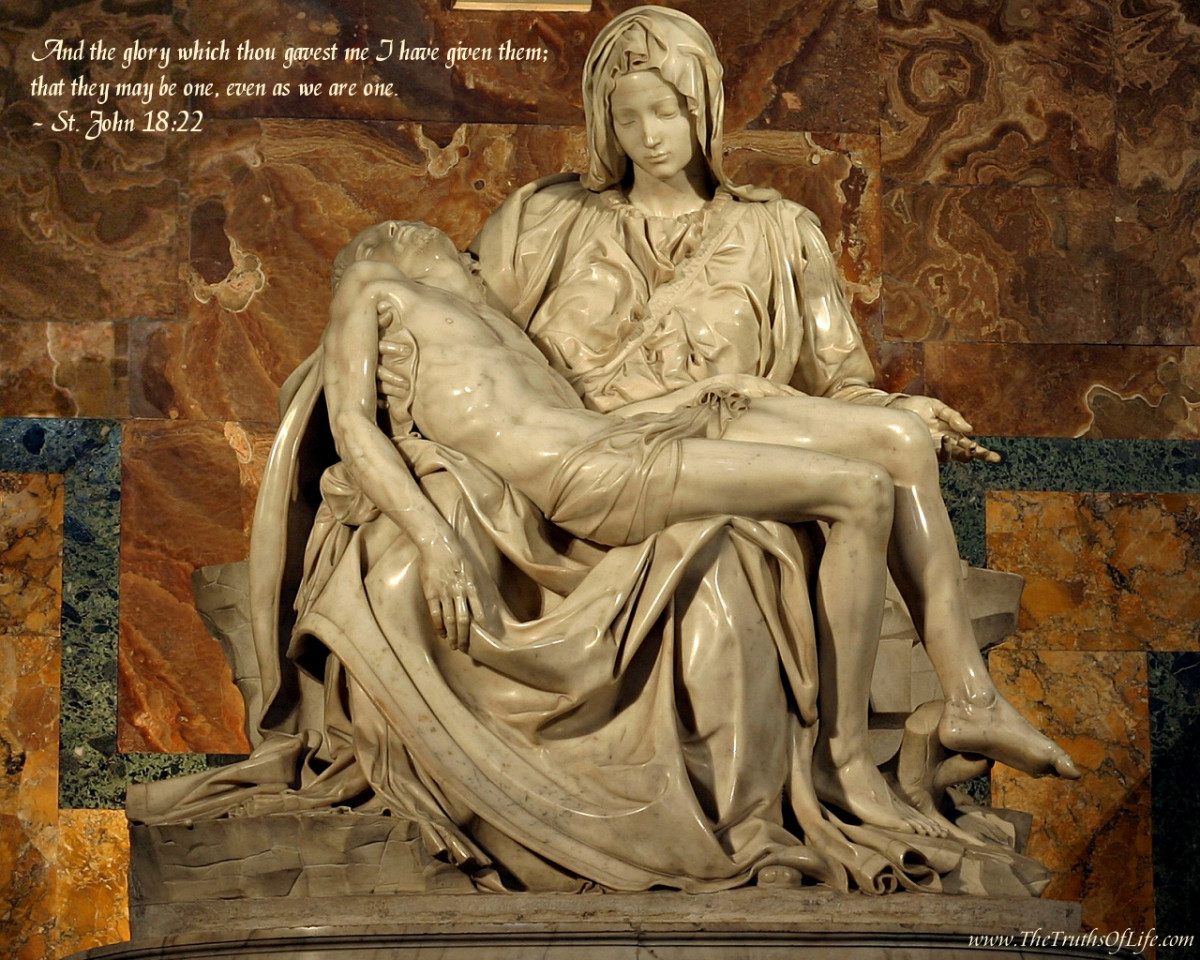Does Our Salvation Depend on our Historical Skills?
Check out my new book
I recently published a book called "Accessible American History." The link below will take you to a hub that provides more information, including links to book excerpts and to where it can be purchased.
Is our eternal destiny determined by our answer to a historical question?
Christianity is based on a strange premise. According to the Christian worldview, all people are sinners who deserve to be punished for their crimes when they die. And although descriptions of hell in the Bible are as vague and metaphorical as those of heaven, most Christians would describe hell as some form of eternal torment. This life, however, will only last a century (or so) at most, so our focus should be on ensuring that we go to the happy place for all of eternity. And the only way to get there is to accept the fact that God came to earth in human form 2,000 years ago with the ultimate purpose of dying for humankind’s sins. So by taking on the punishment that all of us humans deserve, Jesus made it possible for us to be saved from eternal torment. All that we have to do is believe that Jesus’ sacrificial death and resurrection actually happened.
One would think that our ultimate fate on judgment day would be based on our moral decisions. But as I just described, our eternal resting place is actually based on our interpretation of history. If we believe in the literal, historical truth of what is described in the four New Testament gospels, then we will be saved. But if we reject the truth of these historical documents (for any number of reasons), most notably the stuff about Jesus’ death and resurrection, we will be eternally punished. Ultimately, then, our eternal destiny is not based on the quality of our values or of our behavior. It is based on our ability to determine what some obscure guy did about 2,000 years ago.
An accurate picture of history, however, can be notoriously difficult to achieve, particularly when dealing with events that took place a long time ago in which we have limited information to draw any solid conclusions. People argue all of the time, after all, about recent events in our modern age where we have an enormous amount of sources at our disposal. So imagine how difficult it is to know if Jesus actually did the things that his heavily biased followers claimed. Personally, I hope that my eternal resting place is not based on the historical research of others or on my own skills as an interpreter of the past. As a history teacher, I know that I have often messed up “the facts,” and I am well aware that the stuff that I teach as “the truth” may no longer be generally perceived as “the truth” 10, 50, or 100 years from now. And depending on the point of view of the person writing the historical narrative, there are multiple versions of “the truth” even today. So if we humans will inevitably have limited or mistaken views of the past, it seems strange that our eternal destiny would be based on our beliefs about history.
Many Christians, however, would claim that the choice either to accept or reject Jesus is not simply a matter of historical interpretation. In particular, the choice to reject Jesus is not primarily based on a person’s reading of the facts. Instead, it is rooted in a person’s unwillingness to recognize his or her status as a sinner. If people would just look into their hearts and be willing to listen to God’s voice, then they will recognize the truth.
The trouble with this argument is that it could be used to promote any religious belief system, no matter how little basis it may have in reality. If God is going to judge us purely on our theological choices, then He better give us more to go on than the voice inside our hearts. And if people are going to claim that their beliefs are rooted in historical events, then these claims must hold up to reasonable scrutiny. For if it is simply a matter of listening to our hearts, then God’s interventions in Biblical times, from a modern person’s perspective, seem like wasted efforts. Instead of going through the trouble of researching intently the historical claims of the Bible (or of any other religions), we can just listen to our moral conscience and leave it at that.
Christians might also argue, however, that salvation does not simply come from correct beliefs. If a person’s faith does not manifest itself in good works, then that faith is not authentic: “Faith without works is dead,” after all. A commitment of faith is therefore a moral decision, not simply a decision to accept certain facts. The problem, however, is that faith, like moral conduct, is not an either/or proposition. Levels of faith exist on a continuum, as does the moral quality of one’s life. Since degrees of morality or faith vary so much from person to person, it seems strange that we can all be placed into simplistic categories of faithful and non-faithful, Christian and non-Christian. Plus, if faith without works is dead, it is also true that works without faith are dead. So even if a person lives a morally exemplary life, it is irrelevant if this person also has mistaken theology. So in the end, since no human is close to perfect, the only clear distinction between Christians and non-Christians is their different interpretation of history. Apparently, God takes our ability to interpret history properly very seriously. So it is in all of our interest to improve our historical skills. If the Christians are right, our eternal futures depend on them.









